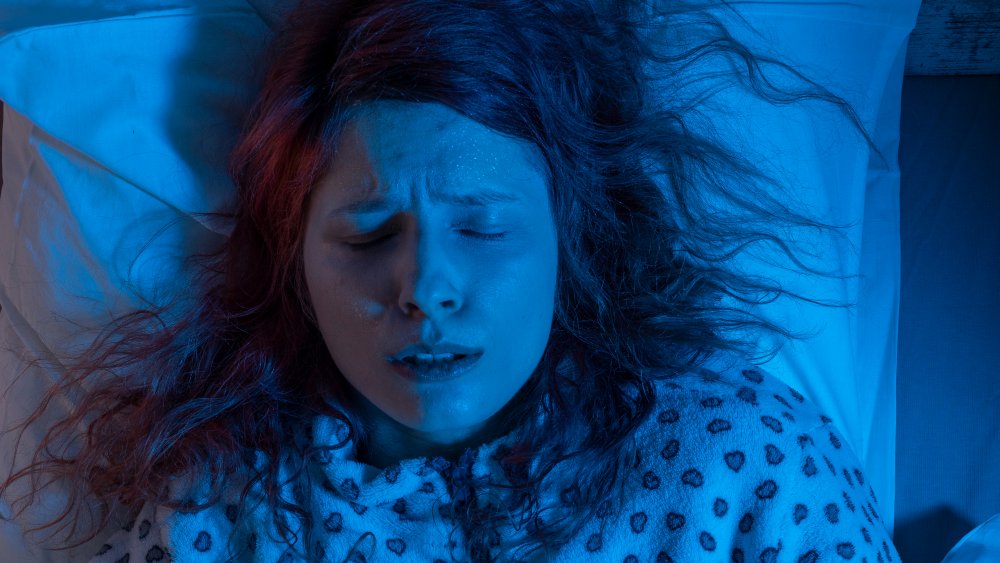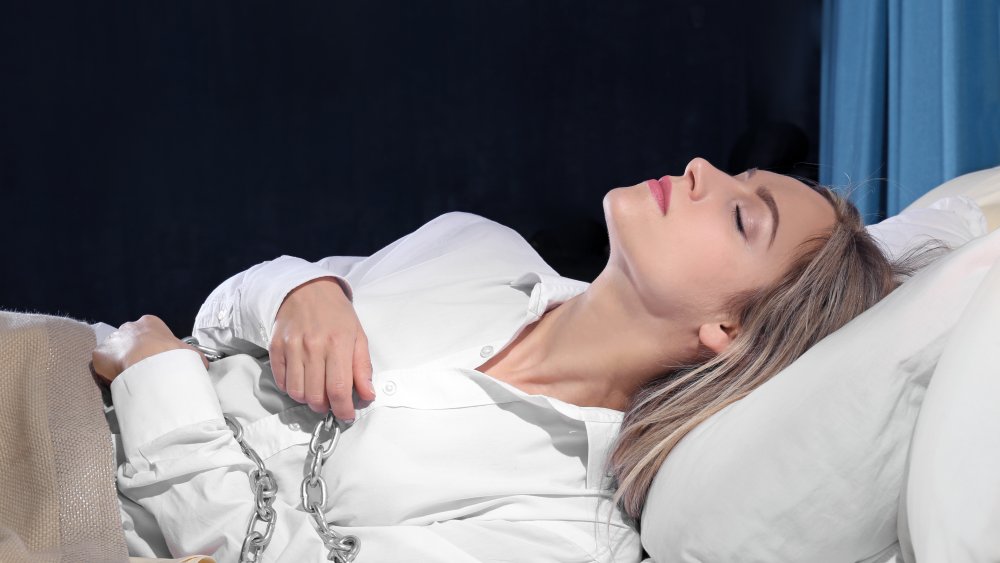Here's What Really Causes Sleep Paralysis
The term "sleep paralysis" can sound terrifying enough even if you don't know anything about the condition. Sleep paralysis is described by WebMD as the sensation of being awake but being unable to move, speak, or even open your eyes. As you experience sleep paralysis, you might even feel like there's someone or something sitting on your chest, pushing you down. These feelings can last anywhere from a few seconds to several minutes. They are unsettling at the very least, and terrifying at most.
An episode of sleep paralysis may be particularly traumatic because, as experts at the Sleep Foundation revealed, hallucinations can occur in conjunction with sleep paralysis. This is because when sleep paralysis happens, the boundary between being awake and being in a dream state is blurred. Although you are conscious, it's possible you may see things that aren't there. Even though those hallucinations are not real, they can certainly feel that way.
Sleep paralysis can happen when you're falling asleep or waking up
As WebMD noted, sleep researchers feel that, in most cases, sleep paralysis is a sign that your body is not transitioning seamlessly through the four stages of sleep, which include non-REM and REM sleep cycles. Under normal circumstances, your body will relax at the same time you drift off to sleep. As such, you're not really aware that your body is entering a state in which it can't move. But, when you have an episode of sleep paralysis as you're just about to doze off, your mind may be several steps behind your body. Thus, you're awake, but unable to move or talk.
Sleep paralysis does not only occur upon falling asleep, but also when waking up. The feeling is much the same; you may regain awareness before your REM or dream cycle finishes and because your body is still relaxed, you won't be able to move to speak.
Several conditions have been linked with sleep paralysis, including narcolepsy (excessive sleepiness), broken sleep patterns relating to shift work or jet lag, having a family history of sleep paralysis, or even sleeping on your back. As scary as it may feel at the time, sleep paralysis is generally nothing to worry about. However, if the episodes make you feel anxious about sleep, there's no reason to avoid seeing a healthcare practitioner, advised Medical News Today.

